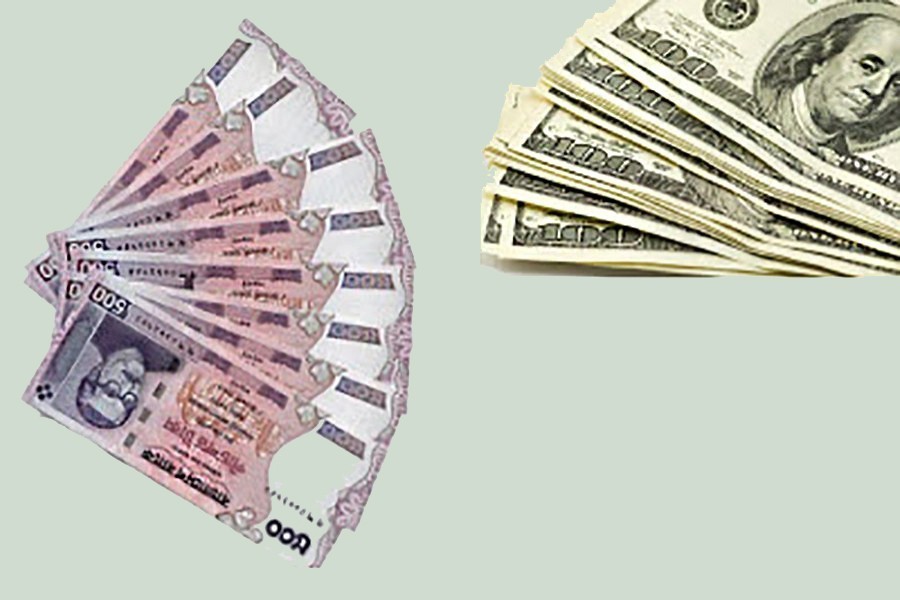Bangladesh Taka (BDT) has depreciated by 50 poisha against the US dollar during the past one month, making imports costlier and heating up the commodity market.
Economists and businesses said depreciation of taka coupled with soaring prices of some essential commodities in the international market has hit the consumers hard.
However, they say, exporters and remitters are gaining from the loss of value of the taka and the rise of the dollar.
Sources said higher demand for the greenback for settling the import- payment obligations and lower inflow of the greenback mainly made the forex-market a bit overheated.
The US dollar was quoted at Tk 85.30 each on the inter-bank foreign-exchange market on Monday against Tk 84.80 on August 17. It was Tk 85.25 on Sunday.
Depreciation of the local currency started on August 18 last to meet the growing demand for the US currency on the market, according to market operators.
The central bank has already extended its foreign-currency liquidity support to the banks to settle their import-payment obligations, a senior official of the Bangladesh Bank (BB) told the FE.
"We may continue providing such foreign-currency support to the banks in line with the market requirement," the central bank noted.
As part of the moves, the BB sold US$10 million to a state-owned commercial bank on Monday to meet the growing demand for the greenback.
The BDT's latest depreciation came against the backdrop of higher outflow of foreign exchange than inflow in recent days, the market operators explained.
They also said lower inflow of remittances also pushed up pressure on the country's foreign-exchange market recently.
The flow of inward remittances dropped nearly 8.0 per cent to $1.81 billion in August from 1.96 billion in the same month of the previous fiscal year following the second wave of the ongoing Covid-19 pandemic.
On the other hand, import payments grew by nearly 22 per cent to $4.76 billion in July, the first month of the current fiscal year, from $3.91 billion in the same period of FY'21.


